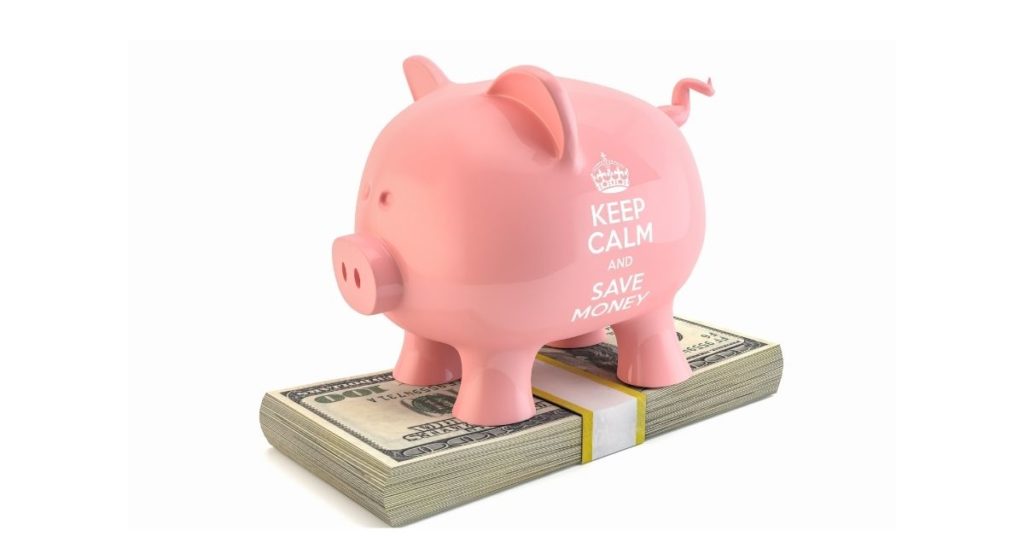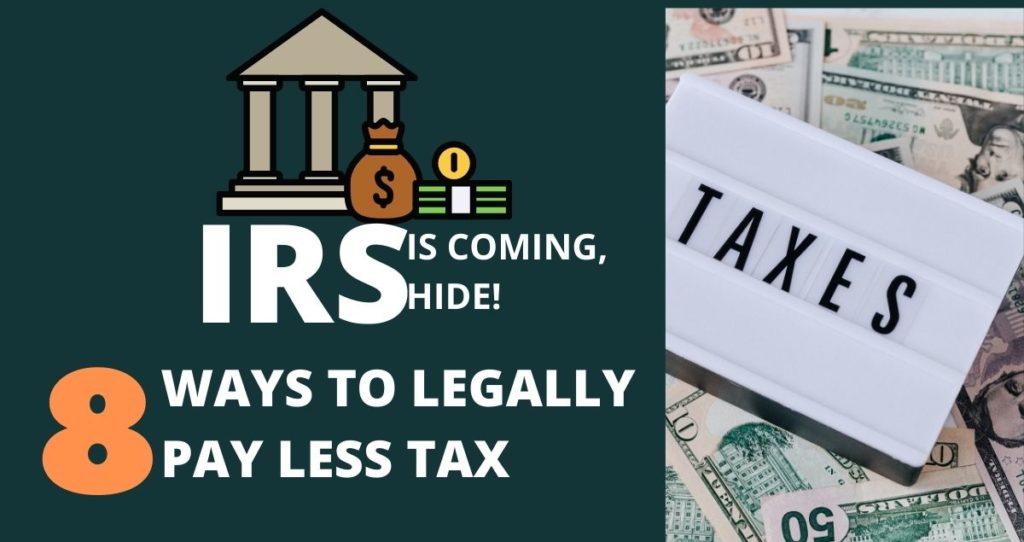Whether it’s a daily commute, a family road trip, or a weekend cruise, having your vehicle can be liberating. But, when it comes to buying a car, the decision between a new or used one can be quite daunting. In this post, we will explore the pros and cons to buy a new or used car so that you can make an informed decision that works best for you.
Here are a few factors to consider if you are trying to decide whether you should buy a new or a used car.
1. Affordability
One important factor to consider when deciding between a new or used car is cost. While a new car may seem like a luxury, it often comes with a higher price tag than a used car. However, this doesn’t necessarily mean a used car is always the cheaper option in the long run.
Another cost consideration is maintenance and repairs. New cars typically come with a warranty that covers repairs for a certain amount of time, which can be a benefit. However, as the car ages and the warranty expires, repair costs can be higher for new cars due to their more advanced technology and parts. Used cars may require more frequent repairs, but the costs are often lower and can be offset by the initial savings on the purchase price.
Note that the cost of a new or used car depends on a variety of factors, including the make and model, mileage, age, and condition.
2. Depreciation
One of the most significant factors to consider when deciding between a new or used car is depreciation. Depreciation is the difference between the value of the car when it’s new and its resale value. New cars lose their value at a much faster rate than used cars, which means that your investment in a new car will quickly decrease in value. This can be especially true during the first year of ownership, as a new car can lose up to 20% of its value in that time.
On the other hand, used cars have already gone through the majority of their depreciation, so their value won’t decrease as rapidly. Some used cars can retain their value quite well, making them a smart investment. However, it’s important to keep in mind that the rate of depreciation can vary greatly depending on the make and model of the car, as well as its condition.
When considering depreciation, it’s also important to think about how long you plan on keeping the car. If you’re looking to trade in or sell the car after a few years, a new car may not be the best option due to its rapid depreciation. However, if you plan on keeping the car for a long time, a new car may be a better investment as it will have a longer lifespan.
3. Insurance
When choosing between a new and used car, it is critical to factor in the insurance cost. Typically, the higher the value of the car, the more it will cost you to insure the car. Some car insurance companies allow you to bundle your car, boats, house, and other cars you own in exchange for a reduced rate. But, your rate will still be a little higher compared to buying a used car.
New cars cost more money which makes them expensive to insure compared to used cars. Keep in mind that other factors contribute to how much you pay for auto insurance. For example, the model of the car, the age of the car, your driving records, and some discounts will all contribute to how much you pay for auto insurance.
Related: 20 tips to save money on car insurance
4. Reliability
Reliability is one of the most important factors to consider when deciding between a new or used car. New cars are usually the most reliable compared to used ones as it takes a while to experience wear and tear.
Used cars, on the other hand, may have already undergone wear and tear, leading to potential maintenance issues in the future. However, this is not always the case as some used cars may have been well-maintained and have a good track record of reliability.
When you are evaluating the reliability of cars, it’s important to research and compare the specific makes and models of cars you are interested in. Look into the car’s history, maintenance records, and any potential recalls or known issues. Additionally, it may be helpful to have a trusted mechanic inspect the car before making a purchase.
5. Environmental Impact
When deciding between a new vs. used car, it’s important to take into account the environmental impact of your choice. While newer cars may have more advanced technology and increased fuel efficiency, they also require the use of more natural resources in their production. Meanwhile, older cars may emit more pollutants and have lower fuel efficiency, but they also represent a form of recycling by extending the lifespan of a vehicle that already exists.
If you’re concerned about the environmental impact of your car, consider factors such as the fuel efficiency of the vehicle, the materials used in its production, and its emissions rating. Additionally, consider the impact of disposing of your current car if you plan to upgrade to a newer vehicle. Finally, weigh the benefits of electric, hybrid, and nonelectric vehicles.
6. Interest rate on a car loan
When deciding between a new or a used car, it is critical to analyze how you will finance the purchase. Since new cars are usually expensive compared to used ones, most people rely on car loans to finance their purchases. Taking out a loan means that you must also pay monthly interest charges on the loan which increase the cost of the car.
What makes used cars superior to new cars when it comes to financing is that they are cheaper. This means that you can either save and buy used cars with cash or take out a small loan.
If you purchase a used car with cash, you will avoid taking out a loan and avoid interest altogether. Even if you end up taking out a loan on a used car, you will still save money in interest due to borrowing less money.
You might also like: How to save money for a car: A complete guide
Used car vs. new car
| Features | Used car | New car |
| Cost | Cheaper to buy | Expensive to buy |
| Registration | Cheaper registration fees | Expensive registration fees |
| Depreciation | Slow depreciation | Fast depreciation (can lose 20% in the first year and up to 15% each year for the next 4 years) |
| Designs | Outdated design and safety features | Updated designs and safety features |
| Environment | Less environmentally friendly | More environmentally friendly |
| Interest | Cost less in interest charges depending on your loan balance | Might cost more in interest charges depending on your loan balance |
| Insurance | Cheaper insurance | Expensive insurance, usually full coverage |
Benefits of Buying a used car
Used vehicles can offer some distinct advantages over brand-new ones. One of the most significant benefits of buying a used car is the cost savings. With a used car, you can often find a vehicle in good condition for thousands of dollars less than the price of a new car.
Another advantage of buying a used car is that it has a known track record. When a car has been on the road for a few years, you can research its reliability and any known issues before making a purchase. This can give you peace of mind when deciding on a vehicle, knowing that you’re getting a car that has already proven its worth.
Additionally, used cars can have lower insurance rates and registration fees compared to new cars. Since insurance rates are based on the value of the car, used cars typically have lower premiums. Similarly, registration fees are often less expensive for used cars because they are based on the car’s value and age.
Finally, used cars do not depreciate as much as new cars-meaning that your car can hold its value for a while which makes a good investment.
Cons of Buying a used car
Used cars can come with their own set of risks and challenges. For example, they may have higher maintenance costs due to wear and tear, and you may not know the full history of the car you are purchasing.
Additionally, some used cars may not have the latest safety features, which could be a concern if you prioritize safety. Finally, most used cars do not come with guarantee-meaning that expensive repairs will come out of your pocket.
Pros and cons of buying a new car
One of the most exciting moments in car ownership is driving a brand-new car off the lot for the first time. There is no denying the thrill of that new car smell and the latest technology features. However, buying a new car also comes with its own set of pros and cons.
The followings are the pros and cons of purchasing a new car you should consider before making the final purchase decision.
The most obvious benefit of buying a new car is that it has never been driven before. This means it will come with the latest technology features, safety features, and fuel efficiency. Additionally, new cars often come with a warranty that can help cover any unexpected repair costs.
Another great benefit of buying a new car is customization options. You may have the opportunity to choose specific colors, features, and upgrades that are not available on used cars. However, these options will often come with an added cost.
On the flip side, buying a new car can come with a much higher price tag and you may also have higher interest charges on the loan depending on your down payment. Additionally, depreciation is a big drawback that comes with new cars. As soon as a new car is driven off the lot, it immediately loses a significant portion of its value, meaning you can expect the car to depreciate quickly.
Why is buying a used car generally better than buying a new one?
While buying a new car certainly has its perks, there are several reasons why buying a used car may be a better option in your case. If you are getting started, a used car is typically more affordable, allowing you to get more for your money. Additionally, used cars have already undergone most of their depreciation, meaning they can hold their value better than new cars.
Furthermore, buying a used car often provides more options in terms of make, model, and year. This can be especially important if you are looking for a specific type of car that may no longer be in production. Additionally, you may have the opportunity to purchase a certified pre-owned vehicle, which has been thoroughly inspected and may come with added benefits such as an extended warranty.
Insurance coverage is usually cheaper for used cars than for new ones. You can even save more money by purchasing only liability coverage depending on the value of your car. Used cars also come with cheaper registration fees compared to new cars which saves you more money.
Are used cars better than new ones?
Generally speaking, buying a used car is a better financial decision compared to buying a new one. But the car you choose to buy will depend on your unique financial situation.
If you are looking for ways to save money on your car purchase, buying a used car will be a better choice. For example, your auto premium will be cheaper, the car depreciated already, and you can purchase a used car with the down payment required on a new car. Meaning, you might not even take out a loan to buy a used car.
As a result, you will avoid fees and interest charges associated with loans. The other thing to keep in mind when purchasing a car is that “Used” is not the same as “Old”. If you do your homework right, you might find a used car that looks just like a new one with almost the same safety features and fuel efficiency but at a fraction of the cost.
On the other hand, if you have the financial means to purchase a new car and are not worried about depreciation or high-cost insurance and registration fees, purchasing a new car might be a great idea. Your lifestyle and personal preference can also impact the car you drive. For example, if you are a ride-hailing driver, having a newer car can help you increase your customer satisfaction. Also, if you don’t have time to have random car inspections, a newer car might be a great choice.
What is the main disadvantage of buying a new car over a used one?
Although buying a new car may seem like the safer bet regarding maintenance and reliability; there is one major disadvantage that cannot be ignored: depreciation. The moment a new car drives off the lot, its value decreases substantially. Some estimates suggest that a new car can lose up to 20% of its value within the first year of ownership. Then up to 15% in depreciation for the following 4 years. This means that if you were to buy a new car today, by next year it could potentially be worth significantly less than what you paid for it. Five years later, the same car will be worth 50% to 60% less than its original value.
While some may argue that this depreciation is simply a natural part of car ownership, it can be a significant financial hit for those who plan to sell or trade in their vehicle shortly. However, this does not mean that buying a new car is always a bad investment. If you plan to keep your vehicle for several years and are not concerned about its resale value, then the benefits of a new vehicle may outweigh the cost of depreciation.
If you are still unsure about whether to buy a new or used car, it’s important to consider your individual needs and budget. For example, if you have all cash needed to cover the whole car purchase and are not worried about depreciation, you might choose to buy a newer model over a used one.
Should I buy a car now or wait until 2024?
If you’re in the market for a new car, you may be wondering if now is the right time to buy or if it’s better to wait until a later date. While it’s impossible to predict the future with complete accuracy, there are a few factors that may influence your decision.
Firstly, it’s worth considering the state of the automotive industry as a whole. The COVID-19 pandemic has had a significant impact on the production and sales of vehicles, with many manufacturers scaling back their operations or temporarily shutting down factories. As a result, there may be a limited supply of certain new cars in the coming months or even years.
Car prices have been on the rise but the trend is slowly coming down. According to the data from Clark, car prices are slowly dropping but they have not yet reached the bottom. That is car prices are expected to continue dropping throughout 2023 but it might take a while to reach pre-pandemic levels.
Additionally, several changes on the horizon could also affect the automotive market. For example, electric vehicles (EVs) are becoming increasingly popular, and many governments are introducing incentives for drivers to make the switch from gas-powered cars. This could lead to a surge in demand for EVs, which in turn could affect the prices of new and used cars.
If you are considering financing your purchase with a car loan, you also need to factor in the interest rate. Currently, rates are so high that it does not make financial sense to borrow money for anything unless you are investing. High rates mean the car will cost you more money in the long run.
So, should you buy a car now or wait until 2024? Ultimately, the answer depends on your circumstances and priorities. If you need a car right away and have the budget to buy one, it may be worth making a purchase sooner rather than later. However, if you can afford to wait and are willing to be patient, it may be beneficial to hold off until the market stabilizes or until new models are released.
What month are car prices the lowest?
Another important factor to consider when buying a car is the time of year. Just like many other consumer goods, car prices can fluctuate depending on the season. If you’re in the market for a new or used car, it’s worth taking note of when prices tend to be lowest.
According to data from Edmunds, the best time to buy a car is typically at the end of the year during October, November, and December. This is because car dealerships are looking to clear out their inventory to make room for the incoming models. As a result, they may be more willing to negotiate prices and offer incentives to buyers.
Another good time to buy a car is during the summer months. Dealerships tend to have slower sales during this time, as many people are busy with other activities such as vacations. This could translate to lower prices and more negotiating power for buyers.
As you progress from January to December, discounts tend to increase throughout the year. Meaning, you will have fewer discounts but more options at the beginning of the year, better discounts during the summer months, and the best discounts in the months leading to the end of the year.
What mileage is good for a used car?
When it comes to buying a used car, one of the most important things to consider is the mileage. The mileage of a used car is often an indicator of its condition and its potential lifespan. While there’s no one-size-fits-all answer to the question of what mileage is good for a used car, there are some general guidelines to keep in mind.
For most people, a used car with between 50,000 and 100,000 miles on the odometer is a good choice. This range is broad enough to encompass a variety of makes and models, and it’s generally considered to be the sweet spot in terms of the lifespan of the car and its condition. Cars with lower mileage may be more expensive, while those with higher mileage may require more maintenance or have more wear and tear.
How many miles is too many for a used car?
While the mileage is a great indicator of a car’s lifespan; it’s important to remember that high mileage doesn’t necessarily mean a car is in poor condition. If a car has been well-maintained and serviced regularly, it’s likely to have a longer lifespan than a car that has been neglected despite having fewer miles.
That being said, a car with over 100,000 miles on the odometer is generally considered a “high-mileage” vehicle due to requiring routine and expensive maintenance, according to Progressive. While this doesn’t necessarily mean you should avoid it, it does mean you should pay closer attention to its overall condition and service history.
Factors like the type of driving the car have been subjected to – highway miles versus city miles – can also have an impact on its longevity. Additionally, the age of the car is another factor to consider alongside its mileage. Older cars with low mileage may have more wear and tear than newer cars with higher mileage.
Is mileage more important than the age of the car?
The age of the vehicle and its mileage are both important factors to consider when buying a used car. While some people may assume that low mileage is always preferable, this is not necessarily the case. The age of the car can be just as important as its odometer reading.
One reason for this is that cars that sit unused for long periods can develop problems that are not related to mileage. For example, the rubber seals around doors and windows can dry out and crack, allowing water to seep into the car. This can lead to rust and other forms of damage that are difficult and expensive to repair.
Similarly, cars that are driven infrequently may not receive the regular maintenance that they need to stay in top condition. Fluids can become contaminated, batteries can lose their charge, and tires can develop flat spots from sitting in the same position for too long.
On the other hand, a high-mileage car that has been well-maintained may be a much better choice than a low-mileage car that has been neglected.






